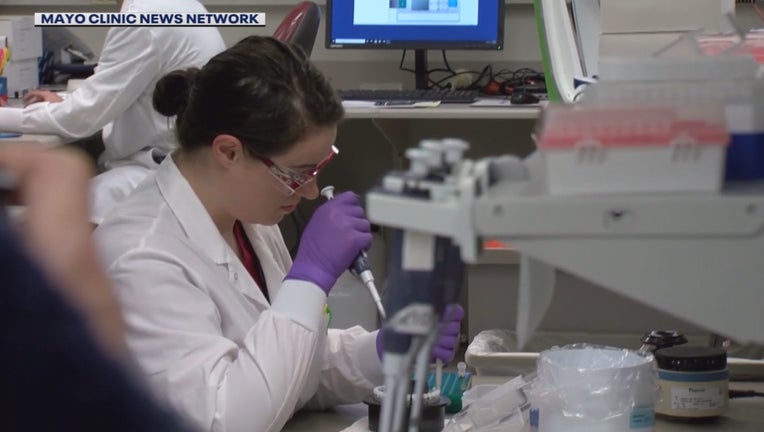Mayo Clinic helping fast-track COVID-19 immunity test and treatment

Researchers at the Mayo Clinic are working on a plasma treatment for COVID-19 patients and an antibody test. (Mayo Clinic News Network)
ROCHESTER, Minn. (FOX 9) - The Mayo Clinic and the University of Minnesota are part of a nationwide effort to begin using old-school medicine to treat this modern pandemic.
The approach uses the immune-rich blood of the recovered, which is the same treatment used in the 1918 flu pandemic. At the same time, research hope to develop a test to identify who already has those antibodies.
Dr. Mike Joyner at the Mayo Clinic in Rochester, Minnesota hopes to be rolling out a coronavirus treatment within days.
“I think we’re in a position here to potentially draw blood and plasma by the end of this week and hopefully use on an emergent basis on a limited number of patients soon,” said Dr. Joyner.
He’s one of the leaders of what’s known as the National COVID-19 Convalescent Plasma Project, which includes 34 institutions in 17 states. He calls it a “scientific jam session.”
They are working to fast-track using the antibody-rich plasma from recovered coronavirus patients to boost the immune systems of the critically ill. The treatment was approved last week for limited use. Dr. Joyner is hoping for wider approval soon.
“So we’re meeting with the Red Cross, our organization, this afternoon,” he said. “We have a call with the FDA this afternoon, all the dominos are out and they’re beginning to fall into place and already in bigger cities where it’s hit earlier, like New York and Houston, this therapy is being utilized.”
So far, the plasma has come from known patients. They’re also working on a test to identify the unknown ones - those who may have had the virus and didn’t know it. That test would identify who may already be immune, which would be critical for frontline healthcare workers.
It’s critical, too, to collect as much plasma as possible for the projected peaks in the coming weeks and expected return in months.
“So if we have plenty of this product around or a concentrated form of this product around, we’ll have better tools in that secondary peak if something comes back in the fall,” said Dr. Joyner.
He says this group of leading medical institutions that coordinated rapidly could be ready now to respond to a threat in the future that could be even worse.
“As horrible, as terrible, as this is what people have to understand is at some level this is a biological Pearl Harbor,” he said. "And this is not the nastiest bug out there.”

